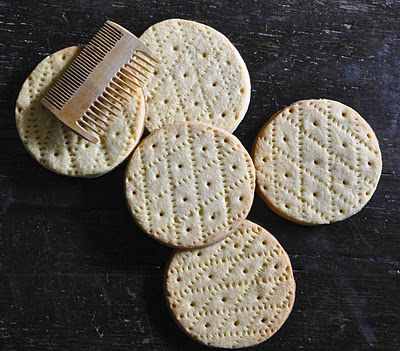Annotation:Shrewsbury Cakes: Difference between revisions
(Created page with "__NOABC__ <div class="noprint"> <p><font face="sans-serif" size="4"> Back to [[{{BASEPAGENAME}}]] </font></p> </div> ---- {{#lst:{{PAGENAME}}|abc}} ---- <div style="page-break...") |
No edit summary |
||
| (3 intermediate revisions by the same user not shown) | |||
| Line 10: | Line 10: | ||
<div style="text-align:justify;"> | <div style="text-align:justify;"> | ||
{{break}} | {{break}} | ||
'''SHREWSBURY CAKES.''' English, Country Dance Tune (cut time). A Major. Standard tuning (fiddle). AABB. The tune was printed in London by John Johnson in '''Choice Collection of 200 Favourite Country Dances, vol. 3''' (1744, p. 91) and by John Walsh in his '''The Compleat Country Dancing-Master. Volume the Fifth''' (c. 1754, p. 118). | '''SHREWSBURY CAKES.''' English, Country Dance Tune (cut time). A Major. Standard tuning (fiddle). AABB. The tune was printed in London by John Johnson in '''Choice Collection of 200 Favourite Country Dances, vol. 3''' (1744, p. 91) and by John Walsh in his '''The Compleat Country Dancing-Master. Volume the Fifth''' (c. 1754, p. 118). | ||
<br> | |||
<br> | |||
[[File:shrewcakes.jpg|500px|thumb|right|Shrewsbury cakes]] | |||
A Shrewsbury cake or Shrewsbury biscuit (in the U.S. we could call them a cookie) is a classic English dessert, named after Shrewsbury, the county town of Shropshire. They are made from dough that contains sugar, flour, egg, butter and lemon zest; dried fruit is also often added. The earliest receipe found for them dates to 1621, but the name is mentioned before that. In 1602 Lord Herbert of Chirbury (Cherbury) described his level of romantic devotion in terms of the Shrewbury Cake with these words: It is "a kind of cake which country people use and make in no place in England but in Shrewsbury . . .Measure not my love by substance of it, which is brittle, but by the form of it which is circular." The playwright William Congreve mentioned Shrewsbury cakes in his play '''The Way of the World''' (1700) as a simile: | |||
<blockquote> | |||
Witwoud: ''Why, brother Wilfull of Salop, you may be as short as a Shrewsbury cake, if you please. But I tell you 'tis not modish to know relations in town.'' | |||
</blockquote> | |||
{{break|2}} | {{break|2}} | ||
</div> | </div> | ||
Latest revision as of 03:11, 21 July 2019
X: 1 T:Shrewsbury Cakes. JJo3.182 B:J.Johnson Choice Collection Vol 3 1744 Z:vmp.Anne Wride 2014 www.village-music-project.org.uk M:C| L:1/4 Q:1/2=80 K:A A2cB/A/ | c/d/ee2 | aAcB/A/ | G/A/BB2 | A2cB/A/ | f/g/aa2 | bgfe/^d/ | e2E2 :| |:e2 gf/e/ | g/a/bb2 | B2dc/B/ | d/e/ff2 | aAcB/A/ | c/d/eea | cB/A/BG | A2A,2 :| W:First Man clap hands twich & cast off & turn the 3d. Wo. W:His Partner do the same & turn the 3d. Man W:First Cu. lead to the wall and foot it with the 2d. Cu & turn Partners quite round proper W:First Cu. lead down, 2d. Cu. at the same time lead up W:First Cu. clap hands and turn it out.
SHREWSBURY CAKES. English, Country Dance Tune (cut time). A Major. Standard tuning (fiddle). AABB. The tune was printed in London by John Johnson in Choice Collection of 200 Favourite Country Dances, vol. 3 (1744, p. 91) and by John Walsh in his The Compleat Country Dancing-Master. Volume the Fifth (c. 1754, p. 118).

A Shrewsbury cake or Shrewsbury biscuit (in the U.S. we could call them a cookie) is a classic English dessert, named after Shrewsbury, the county town of Shropshire. They are made from dough that contains sugar, flour, egg, butter and lemon zest; dried fruit is also often added. The earliest receipe found for them dates to 1621, but the name is mentioned before that. In 1602 Lord Herbert of Chirbury (Cherbury) described his level of romantic devotion in terms of the Shrewbury Cake with these words: It is "a kind of cake which country people use and make in no place in England but in Shrewsbury . . .Measure not my love by substance of it, which is brittle, but by the form of it which is circular." The playwright William Congreve mentioned Shrewsbury cakes in his play The Way of the World (1700) as a simile:
Witwoud: Why, brother Wilfull of Salop, you may be as short as a Shrewsbury cake, if you please. But I tell you 'tis not modish to know relations in town.
